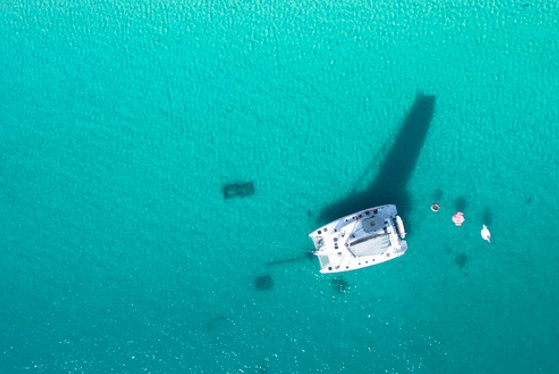Mankind has long had a love affair with sailing the seas, and mono-hulled ships have dominated a large part of history as the primary method of said sailing. However Catamarans, or multi-hulled ships, are becoming more and more popular in this modern era. The internet is teeming with advice on how to sail Catamarans, where to sail Catamarans, how to improve the performance of your Catamaran, and so on. So, it’s no wonder that with all of that information floating around, things can often get confusing. We’ve put together a list of the six main factors of learning to sail a Catamaran in order to clear up some of the muddied waters.
Pack Only the Essentials
Preparing for a full day on the sea is an exercise in planning for many different outcomes, and unlike with single hulled ships, Catamarans have a lot of room to store things. This room can become tempting to load up with many things you might not need, but might want, and that’s why this is the first point on this list. Catamarans perform best when not overloaded with items, and your ship performing to it’s best is what it was designed to do, so don’t overload it unnecessarily.
Clean Regularly
Your ship will be subjected to all of the same conditions as any other ship at the mariner, so neglecting to clean it will result in damage to your hull in the long term, and damage to your performance in the short term. Neither of these things are good for your Catamaran or your sailing spirit, so keeping your hull clear of marine life and algae is a must.
Learn the Subtleties
Unlike with a mono-hulled ship, Catamarans are much more subtle in their indicators of problems. Where a dingy will kick up into the air nose-first when too much throttle is applied, a Catamaran may only incline a few extra degrees, but the boost of speed will damage the sails over the long term, so learning to feel for the subtle shifts in your ship is key to having a long and happy sailing career.
Ensure You’re Tethered
Falling off a ship can be fun and whimsical when you’re anchored and need a dip in the water to refresh yourself, but at high-speeds on a multi-hulled vessel while careening across a bay is a much more dangerous time to test the waters. Tethering yourself to your boat is absolutely a must, especially since Catamarans get up to much higher speeds than other ships.
Learn to Use Your Engines
Your dual engines for your Catamaran are good at propelling you at speed in one direction or another. However, more importantly, they’re good for maneuvering yourself around your mariner with accuracy and skill, and offer more control at lower speeds than your rudder and sails ever will. It’s also worth learning to sail on open water by wind and rudder alone, to prevent stranding in an emergency.
Consider the Wind
Catamarans are often very large, and their two hulls can make them feel solid as a rock in any weather conditions, but be very careful about how, when, and where you use your Catamaran to ensure it’s longevity. Catamarans being large is great for stability, but not so great for wind-resistance, especially from the side. Try to avoid strong side-gusts and overly windy days on the bay, and never sail in unfamiliar waters when the seas are choppy or visibility is bad. One piece of rock or reef unseen can spell disaster for you and your ship, so play it safe and sail known waters in safe conditions.
Catamarans are great pieces of engineering, and a lot of fun can be had on them if you stick to these guidelines and properly educate yourself on their usage and maintenance.
Discover more from Don't Stop Living
Subscribe to get the latest posts to your email.



Your sailing trip requires plenty of time and effort. Do plenty of research online and perhaps visit a boat show where you can discuss your big ideas with a representative from a yachting holiday company.
Hi Bruce, thanks for the comment and apologies for the delayed response. I have been suffering from long term depression caused by liars. I am glad you enjoyed my post on sailing. Stay safe. Jonny